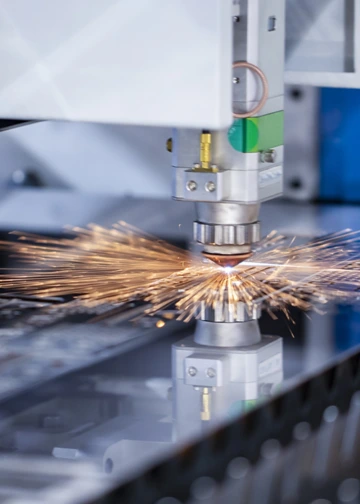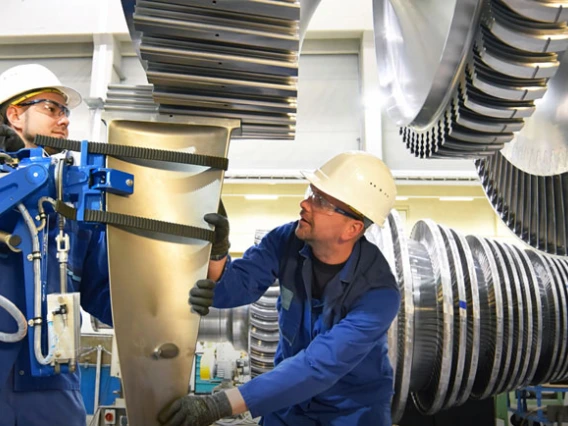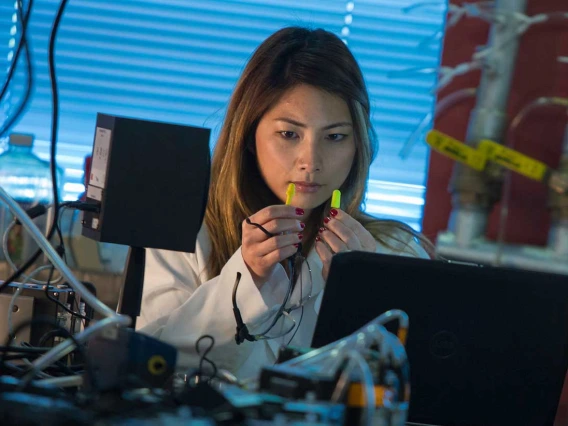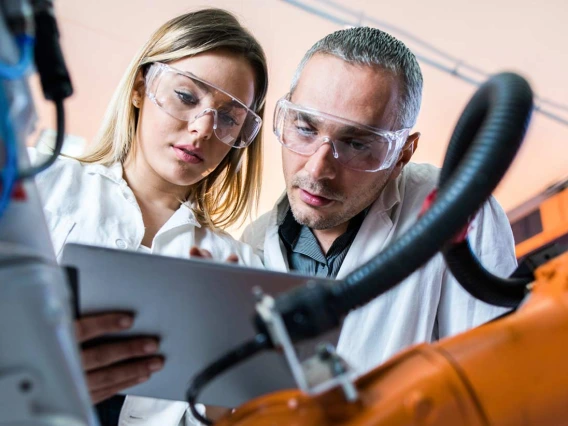Mechanical Engineering
Master of Science
Quick Facts

Top 1%
of all Higher-Ed
Institutions
- Center for World University Rankings, 2024
#1
In Best Value Among
Arizona's Public Universities
- Payscale, 2024
According to the American Society of Mechanical Engineers, a master's degree is becoming a standard requirement to advance into higher-paying supervisory and management roles.
The Master of Science in Mechanical Engineering (MSME) is the only online graduate degree offered in this discipline in Arizona. It provides excellent value compared to similar programs across the nation. The courses offered in the program seek to deepen the knowledge acquired at the bachelor's level to prepare you for increasingly more complex and interdisciplinary tasks in the modern workplace. The courses are supported by world-class faculty with relevant expertise. The MSME degree may also be an entry point for students seeking a PhD to pursue research or academic careers in national laboratories or universities.
You can tailor your study plan to fit your interests in one or more core areas, including dynamics and control systems, fluid mechanics, solid mechanics, and thermal sciences. Customize your program further by choosing from microelectromechanical systems (MEMS) or design and optimization options. A broad range of courses and faculty with relevant expertise supports the core areas and specializations.
As a graduate of the MSME program, you'll be in high demand across various employers in industries ranging from aerospace, automotive, and mining to electronics, software, and biomedical device sectors.
A Bachelor of Science in Mechanical Engineering or a related field is required for admission into the program.
*Residents of some U.S. Territories may not be eligible. Please see our Eligibility & State Authorization page for more information.
Courses in the MSME program include:
This course will cover vector calculus, linear algebra, ordinary differential equations, and calculus of variations.
Learn complex variables, partial differential equations, eigenfunction expansions, and transform methods
Explore reversible and irreversible macroscopic thermodynamics; selected engineering applications.
In this course, you will cover convective energy, mass, and momentum transfer; internal and external flow; exact, approximate, and numerical solutions; application to current problems.
Learn the fundamental equations of motions; surface tension; kinematics of vorticity; integral solutions; irrotational flows; simple viscous flows.
This course provides fundamental knowledge into the phenomena of high-temperature, non-equilibrium, and rarefied flows.
Learn about solar radiation intensity and location; basic concepts of solar thermal and photovoltaic processes; solar collectors; economic system design for electric power and water heating; active and passive building heating and cooling processes.
This course will introduce you to the finite element method to solve boundary value problems in structural mechanics (statics and dynamics), heat transfer, and acoustics.
Outcomes
Potential Career Paths
As a result of this program, students will build core skills, including:
- Advanced engineering analysis
- Advanced simulation & modeling
- Modeling of physical phenomena
- Cutting-edge research activities Writing & presentation skills
Graduates of the Mechanical Engineering MS program will be prepared to pursue careers in the following fields:
- Aerospace/Defense industries
- Automotive/Machinery industry
- Electronics/Chip manufacturing industry
- Biomedical devices
- Space technologies

The thesis option consists of 26 units of coursework, plus 6 units of thesis coursework.
If you choose to pursue the thesis option, you will need to complete a thesis and pass a final oral examination. The examination lasts from one to two hours and includes a defense of the research results.
Courses in this track include:

The report option consists of 29 units of coursework, plus 3 units of Master's report coursework.
No other independent study units are allowed for the report option. If you choose to pursue the report option, you will complete a report and pass a final oral examination. This examination consists of a 30-minute presentation by the student followed by 15 minutes of questioning.
Courses in this track include:

The non‑thesis option consists of 32 units of coursework following the general requirements of the M.S. degree program. A maximum of 3 units of independent study or 3 units of research may be included in the program.
If you are interested in independent study, you will need to make arrangements for supervision by a faculty member in the Department and submit the independent study proposal form to the Graduate Administrative Associate. The non‑thesis option does not require a final oral examination.
This option will not be available if you receive financial support from the University in the form of teaching or research assistantships or fellowships.
Courses in this track may include:
4th Aerospace Manufacturing, State Ranking
-PricewaterhouseCoopers
$5.5 million Annual Research Expenditures
22nd R&D Ranking, Public Universities
-National Science Foundation











